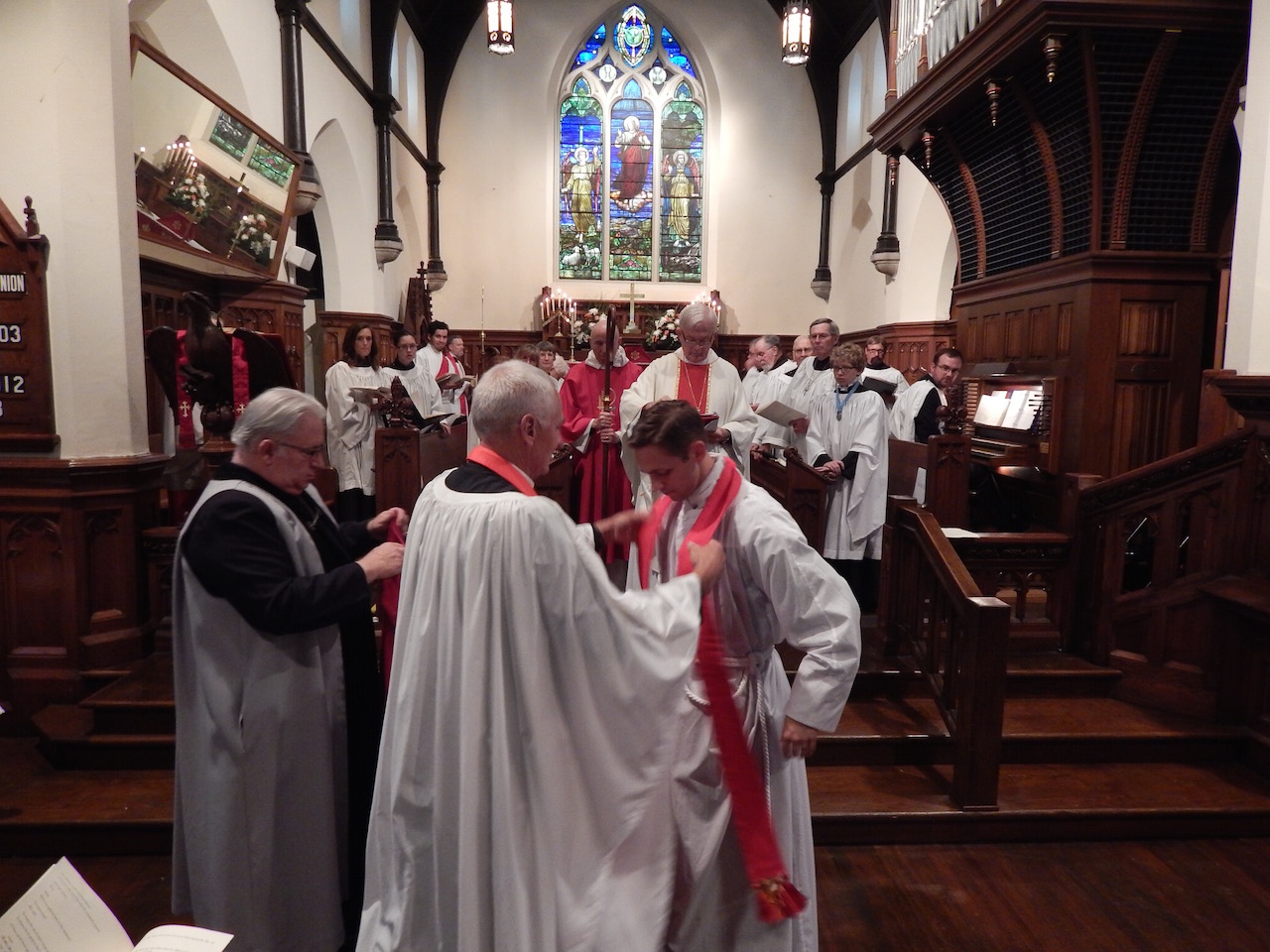
Okay. It’s an election year, and once again I’m hearing that our nation is more politically polarized than ever. It’s said there is a general loss of civility, and if we would just mind our manners, we could learn to get along. Although it does seem as though people are in fact letting their manners slide, I think such hand wringing is actually counter-productive. By calling attention to the how of the current debate, we are tempted to ignore the what, which is the crux of the matter. I believe that liberals and conservatives are so profoundly different in terms of how they look at the world and the human experience that sharp divisions about public policy are inevitable. Moreover, these divisions will prove increasingly intractable unless deep-seated presuppositions that cause them are exposed and dealt with.
There are actually two problems that need to be addressed. The first is this: at what level do liberals and conservatives originally diverge? Do they diverge, as some say, at the point that some want to help people, while the other side does not? Or do they part company at an earlier point, where the very definition of help is different? Until the point of original separation can be pinpointed, no commonality in later debate can be hoped for. Until there is a clear statement of the problem, there can be no expectation of a solution.
So let’s start by assuming that both sides want to help people. No divergence there. But what constitutes help? That depends on what we need help from. Politics is about solving problems, so what is the source of the problems from which we need deliverance? As we try to answer that question, we start to see divergence.
The liberal view is that problems come from without; people are inherently good and industrious, and if we are not experiencing prosperity, it is on account of some obstacle raised by others. Racism, gender discrimination, economic disadvantage, lack of educational opportunities, you name it; these are stumbling blocks the poor person has no control over, they are imposed from without, by others. By removing these impediments, the liberal hopes to release the natural goodness stored up in people. All our affirmative action programs, sensitivity training, race and gender quotas and general political rectitude find their justification in this benevolent view of man and the world he lives in. A classic example of how the philosophy of man forms political conclusions is Karl Marx, who said that man is good, but capital is bad. Take capital out of the equation through communal ownership, and you have the perfect society where man is free to prosper. This philosophy has been adopted hook, line and sinker by the media and secondary and university schools.
In stark contrast to this attractive yet sentimental view of man is the conservative perspective. What the conservative says is that man is anything but benevolent and prone to selfless industry unless it is required of him. The conservative goes on to say that given a choice, man in his natural state will do as little as possible to get as much as possible, and cannot or will not change unless forced. Mankind, he says, tends to selfishness and laziness, and thus man’s problem lies within each individual, not in the larger society. Conversely, there is no obstacle raised from without that can subdue a person’s will that is properly aroused. The economic implications of this view were best expressed by Adam Smith, who said that it’s not altruism but rather self-interest that leads to the efficiencies and economic gains that can really set people free. The antecedent philosophy of man can be traced to the Bible.
So a first area of divergence between liberal and conservative can be said to be regarding the locus of the problem from which we are seeking relief. But this observation begs further questions. What does this view of man say about the world we live in? Is there such a thing as right or wrong? Are there moral absolutes that govern human choices and behavior? Moreover, what does it matter that we do right and avoid wrong? Are there consequences to choices in this life, and what of a life to come? Is there a God who cares and who takes note of our choices, or do we just prefer a society that has social customs that bring order and peace?
This brings us to the second of the two problems alluded to above. That is, are we really free to explore the origins of the divergence between liberals and conservatives? I posit that liberals, who tend to deny the existence of moral absolutes and the Divine, cry foul when the debate goes back as far as it needs to in order to really accomplish anything. Although liberals claim the moral high ground, they balk at attempts to ground that morality in something more concrete than a general feeling or Darwinian expedience. Any reference to propositional truth or “religious” inferences are said to be “personal” at best and “unconstitutional” at worst. Therefore, discussion of the basic assumptions that separate liberal and conservative thinking and subsequent public policy decisions is prevented by saying that the debate cannot include those very values that must be agreed upon if progress is to be made.
So lacking common philosophical ground, is there anything that can be done to stop what Swiss psychiatrist Paul Tournier calls a “dialogue of the deaf?” Rather than starting with ideas and asking that everybody think, perhaps we can start with facts, and ask that everybody look. Shouldn’t it be possible to observe and measure human behavior? Aren’t there situations where the divergent theories about the nature of man are able to predict what will happen, and by observation and measurement, we can tell who’s right and who’s wrong?
What the liberal philosophy states is that good public policy should not concern itself with rewards and punishments for individuals. The problems do not originate within the individual, therefore neither should the solutions. As a consequence of this conviction, all liberal public policy measures seek to ignore the decision making and behavior of the individual citizen; it is expected that these will reform when the true causes of suffering are taken care of at the societal level. This is why government is the chosen instrument of reform for all liberal causes. “The government must lead,” to quote our current President.
By contrast the conservative view is that just as there are natural laws like gravity and temperature, there are moral laws whose consequences can be observed and codified. To violate them and expect no consequence is the same as jumping off a cliff and not expecting a hard landing. Good public policy, they say, should be based upon strengthening, not weakening, these mechanisms of cause and effect, so that the individual can learn, change and grow based on their experience. In the same way Adam’s Smith’s invisible hand led individuals to make decisions that were good for the economy as a whole, so too the individual who has the guidance of cause and effect in laws will make personal decisions that benefit society as a whole.
Here is our chance to raise the level of debate from name calling to science. Each of these perspectives, as divergent as they are, can predict behavior in actual life cases and be tested for veracity. Think about it. If the liberal is right, then there should be cases where societal obstacles have been removed, and people prosper and improve their lot in life naturally. By contrast, the conservative view should also be measurable. When punishments have been provided for doing wrong and rewards for doing right, have people tended to change their behavior and reform? Conversely, are there cases where consequences for decisions and actions have been removed, and people start to misbehave?
Here are some concrete ideas for analysis. According to the liberal view, people who receive government aid should only do so for a period of time until their improved fortunes allow them to get off the dole. This can be measured. Are welfare rolls static, or dynamic? Are people getting on, finding help, and then getting off, or are they staying on? How about people who receive free health care from hospital emergency rooms? Do they use the money they save to buy health insurance, or do they continue to use hospitals as primary care institutions because hospitals are not allowed to turn people away? Do those who claim to be unable to afford health insurance have cell phones, buy lottery tickets, smoke cigarettes or buy cable TV? And what about when society becomes unregulated? What happened in New Orleans when thousands of people disobeyed the evacuation order and destroyed much of what Hurricane Katrina spared? How do you explain looting in civilized societies when the police are inhibited or the power goes out? Although the work has yet to be done, or reported in the press, research into questions like this will help by substituting facts for rhetoric.
The conservative view of man can also be measured. Does Singapore have a drug problem? No. Why not? Because if you are found using or selling drugs, you are beaten or executed. No questions asked. Cause and effect. Is there a correlation between the economic health of American cities and how recently they’ve had a Republican mayor? Yes, and it’s almost perfectly inverse. And speaking of Detroit, did the American auto makers take note of decreasing market share and improve the appearance, performance and quality of their cars in time to stave off disaster? No. They made no changes until they were forced to. When the rules of cause and effect are suspended, not much happens. Not much good, at any rate. What role did the Great Society programs of the 1960′s play in driving men from homes? What is the impact on the behavior of children when there is no father in the home? Is there a correlation between voting behavior, liberal versus conservative, and obedience to laws, particularly those controlling recreational drugs? These are legitimate questions that deserve careful study and dispassionate answers.
If research does establish that liberals are inaccurate in their understanding of human nature, then more than their political agenda will have to be revised. Remember, their public conclusions were based upon assumptions about the individual person that, if wrong, would suggest that what they’ve been doing for people is actually hurting, and not helping, them. By telling people that your decisions and actions need not be taken into account, they have created an intellectual and psychological under class that can only grow. It’s almost as if liberals generate poor people to not only give themselves jobs in the give-away programs they so love, but also derive a perverse sense of purpose they could not otherwise have if there were no poor. If they were to admit to the existence of moral absolutes or moral cause and effect in the world, they would undermine their position as benefactors and arbiters of rectitude. To admit the existence of the absolute or the Divine would, in other words, be bad for business.
So do not be surprised by the vitriol generated in the coming election. There will be name calling, lying, twisting the facts, and attempts to manipulate an unsophisticated and ignorant electorate. This is to be expected. What is sad is that the conservative candidates will probably not avail themselves to the best defense in cases of libel, and that is to simply report the truth. Do these studies, come up with the facts, use sociology to dispel myth, all to show how “helping” people has actually resulted in their enslavement to a new master more evil than the first. We should not adopt a philosophy, theology or political badge for any other reason than because it explains the world as it can be observed, in other words, because it makes sense. Don’t believe something because it feels good, believe it because it works.









Recent Comments